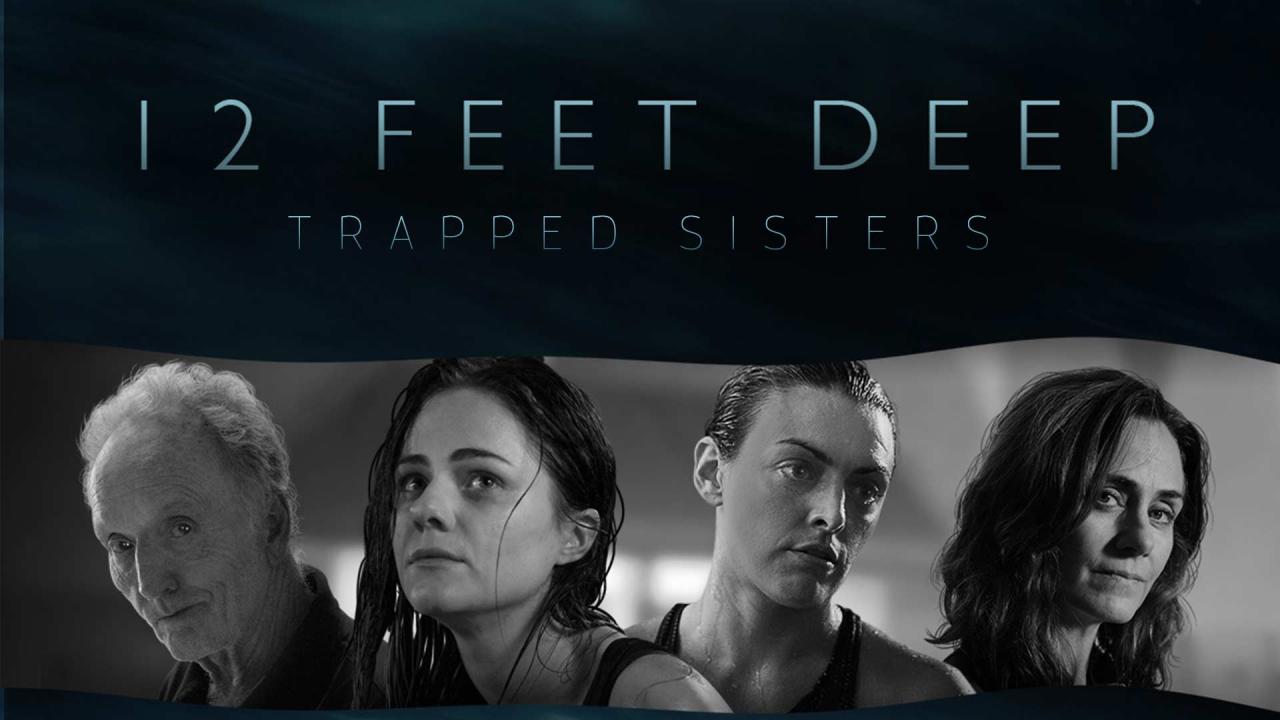
12 Feet Deep (2017) is an American psychological horror-thriller directed by Matt Eskandari, which delivers an intense and suspenseful experience of survival against all odds. The film, written by Eskandari, focuses on the terrifying ordeal of two sisters, Bree (played by Alexandra Park) and Jonna (played by Nora-Jane Noone), who find themselves trapped in a public swimming pool overnight after a series of unfortunate events. The film explores themes of isolation, desperation, family dynamics, and the instinct to survive, all set against the claustrophobic confines of a pool and the looming danger of a fast-approaching night.
The story begins when Bree and Jonna, who are estranged sisters, decide to visit a public swimming pool to have a private swim. Unbeknownst to them, the pool is about to be closed for the night. The pool’s manager, played by Michael Swatton, activates the pool’s automatic security cover, which is designed to shut the pool down by covering it entirely with a large, solid plastic lid. This action traps the two women inside the pool, leaving them helpless and stranded in a dangerous situation with no way to escape.
The sisters’ relationship is strained, with unresolved personal issues and tension between them, which adds an emotional layer to the narrative. Their conflict becomes a crucial part of the story, as the sisters are forced to confront their differences while trying to survive their traumatic ordeal. As they struggle to free themselves from the trapped pool, they must also deal with their personal baggage, their past, and the survival instincts that begin to take over as their chances of rescue grow slimmer.
From a psychological standpoint, 12 Feet Deep does an excellent job of creating a sense of claustrophobia and helplessness. The confined space of the pool, covered by the heavy security lid, leaves the characters with limited options for escape or help. The pool’s eerie quietness, the absence of other people, and the increasing tension between the sisters are all elements that make the setting feel unnerving and hostile. As the night wears on, their psychological states deteriorate, and the threat of suffocation, dehydration, or death becomes ever more real.
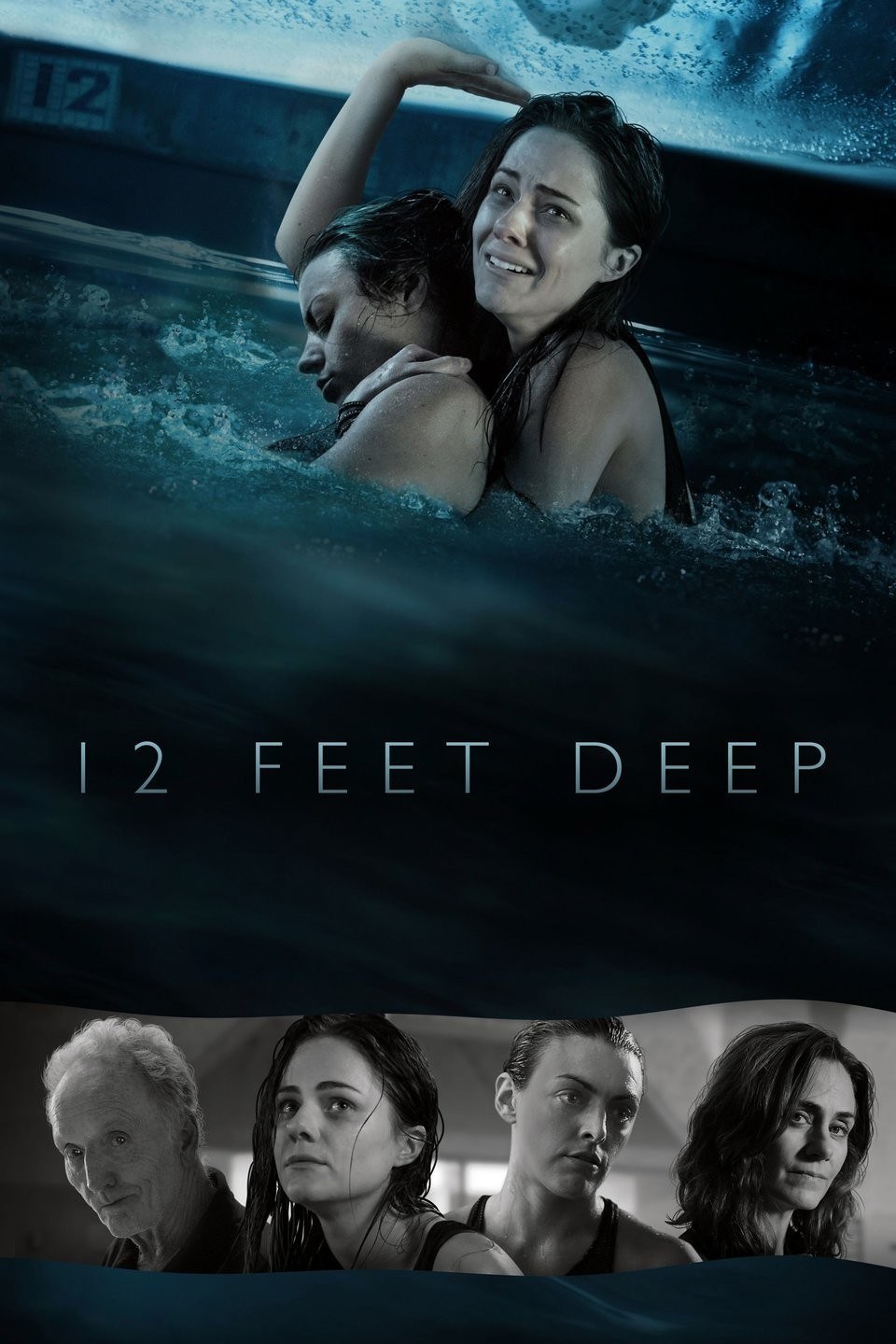
One of the film’s most effective elements is its exploration of human survival instincts in extreme circumstances. As the sisters’ physical and emotional conditions begin to worsen, their relationships are put to the test. The situation forces them to examine their bond as sisters, their regrets, their desires for reconciliation, and the deep-seated fears they have of facing a situation where survival becomes paramount. This aspect of the film delves into the characters’ psyches, questioning the nature of their personal struggles and the lengths they are willing to go to in order to save themselves and each other.
In terms of the performances, Alexandra Park and Nora-Jane Noone deliver strong portrayals of their respective characters, bringing depth and vulnerability to their roles. Alexandra Park’s portrayal of Bree is particularly compelling, as her character deals with internal conflict and a mix of panic, frustration, and determination. Nora-Jane Noone as Jonna is equally effective, embodying a more cynical and pragmatic approach to the situation, which creates an interesting contrast between the two characters. The tension between the sisters is palpable, and the film’s psychological and emotional depth is significantly enhanced by their performances.
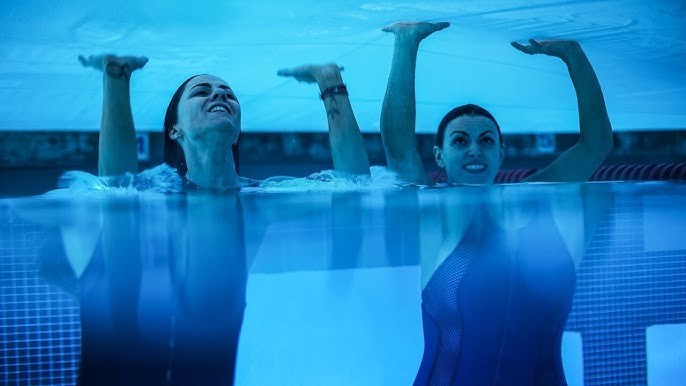
The film also plays on the idea of psychological horror through the sense of time passing, as the sisters slowly lose hope of being rescued. With each minute that ticks by, the characters become increasingly desperate, and their chances of survival appear slimmer. The fear of suffocation under the pool’s cover is a constant looming threat, and the film builds tension by showing the psychological toll the situation takes on them.
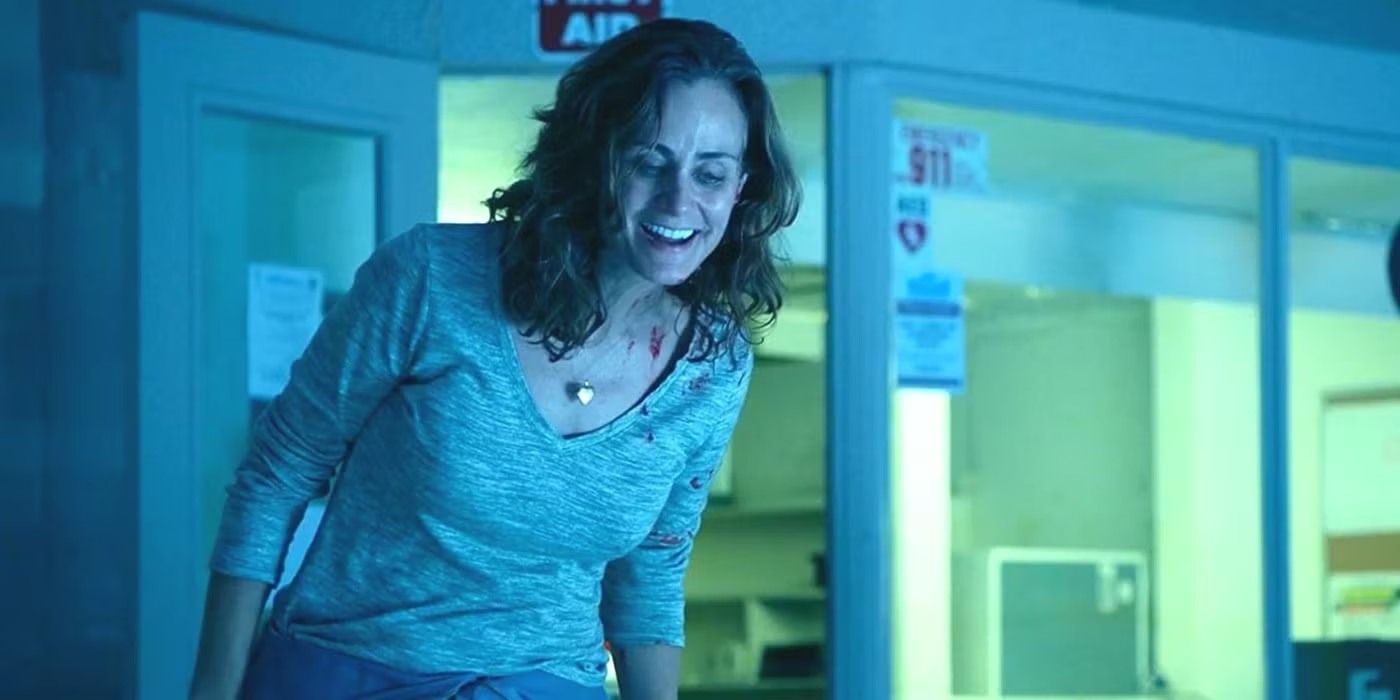
Despite being a relatively simple premise—two women trapped in a pool—12 Feet Deep is able to sustain its tension and suspense through its slow-burning plot and clever pacing. The confined space, combined with the looming threat of death, creates an environment in which every moment feels urgent and fraught with danger. The film’s use of limited locations, minimal cast, and focus on character interaction allows it to build tension effectively and keeps the audience on edge throughout the duration of the film.
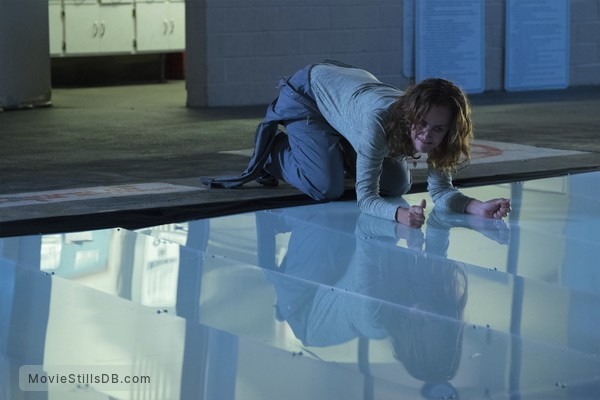
The final act of the film provides a tense and dramatic conclusion, with a sequence of events that forces the sisters to take extreme measures in order to survive. The resolution is somewhat ambiguous, but it serves to emphasize the unpredictable and often unforgiving nature of life-or-death situations. The film leaves the audience with lingering questions about survival, sacrifice, and the complexities of familial relationships.
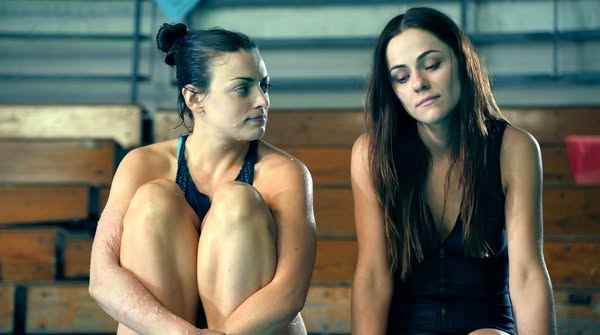
12 Feet Deep is a thrilling and thought-provoking psychological horror film that stands out for its ability to blend physical danger with deep emotional and psychological turmoil. By focusing on the bond between two sisters in a life-or-death situation, the film explores the complexities of human relationships and the instinct to survive when faced with overwhelming adversity. While it may not have the high-budget thrills or supernatural elements often associated with horror films, 12 Feet Deep succeeds in creating a palpable sense of dread and claustrophobia that keeps the audience engaged and invested in the characters’ survival. It’s a film that forces viewers to ask: How far would you go to save yourself, and would you be willing to save others along the way?
